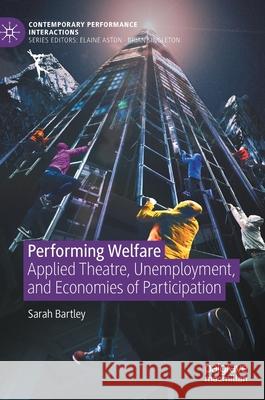Performing Welfare: Applied Theatre, Unemployment, and Economies of Participation » książka
topmenu
Performing Welfare: Applied Theatre, Unemployment, and Economies of Participation
ISBN-13: 9783030448530 / Angielski / Twarda / 2020 / 265 str.
Performing Welfare: Applied Theatre, Unemployment, and Economies of Participation
ISBN-13: 9783030448530 / Angielski / Twarda / 2020 / 265 str.
cena 201,24
(netto: 191,66 VAT: 5%)
Najniższa cena z 30 dni: 192,74
(netto: 191,66 VAT: 5%)
Najniższa cena z 30 dni: 192,74
Termin realizacji zamówienia:
ok. 16-18 dni roboczych.
ok. 16-18 dni roboczych.
Darmowa dostawa!
Kategorie:
Kategorie BISAC:
Wydawca:
Palgrave MacMillan
Seria wydawnicza:
Język:
Angielski
ISBN-13:
9783030448530
Rok wydania:
2020
Wydanie:
2020
Numer serii:
000770014
Ilość stron:
265
Waga:
0.48 kg
Wymiary:
21.01 x 14.81 x 1.75
Oprawa:
Twarda
Wolumenów:
01
Dodatkowe informacje:
Wydanie ilustrowane











